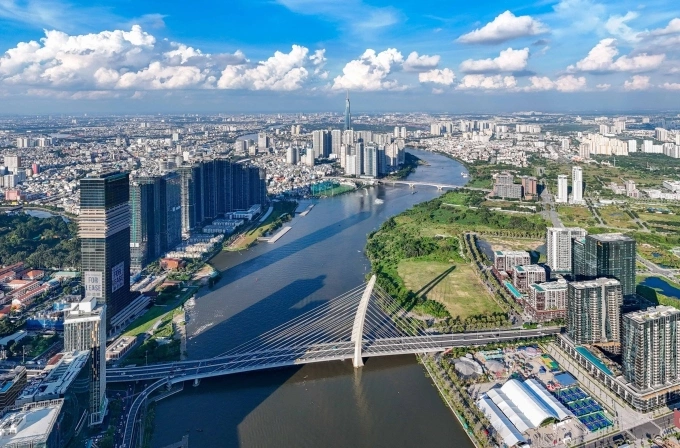The government has directed ministries and other agencies to pinpoint the causes of escalating property prices and propose measures to stabilize them.
The property market has not developed commensurate with its potential due to persistent issues and prolonged bottlenecks, it admitted in a recent report.
The challenges included a shortage of affordable products for young and low-income workers and the abundance of villas and other high-cost housing.
Housing prices were also misaligned with the purchasing power of those with a genuine need, while speculation and market manipulation continued to occur in many areas.
Ministries and local authorities therefore needed to identify factors like land and construction material costs and loan interest rates that drove the market up.
 |
|
Thu Thiem Urban Area in Ho Chi Minh City. Photo by VnExpress/Quynh Tran |
Government bodies needed to develop plans to reduce cost-inflating components, expand supply and improve housing accessibility for the public.
They needed to crack down on organizations and individuals exploiting land auctions to inflate prices, which obstructed housing development.
Planning efforts had to align with actual needs, ensuring reasonable allocation of land for other commercial needs to ensure there was enough left for housing development.
In the first quarter prices of housing and land rose by 20-40% year-on-year in some locations in the country, according to the Ministry of Construction.
This was attributed to factors like high costs of materials and labor, elevated loan interest rates, limited new supply due to legal hurdles, and speculative investments.
The government has instructed ministries to develop a real estate trading platform to integrate all real estate transaction processes – from notarization and taxation to registration of land transactions – electronically and make it similar to a stock exchange.
The initiative aims to “enhance transparency of asset and transaction price information, reduce tax evasion and improve efficiency of oversight.”
The government also wants to reduce by 30% the time and costs needed to complete administrative procedures for property projects.





